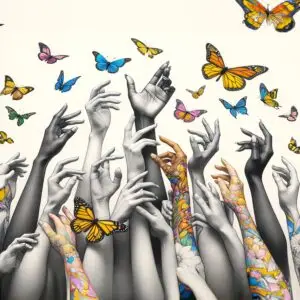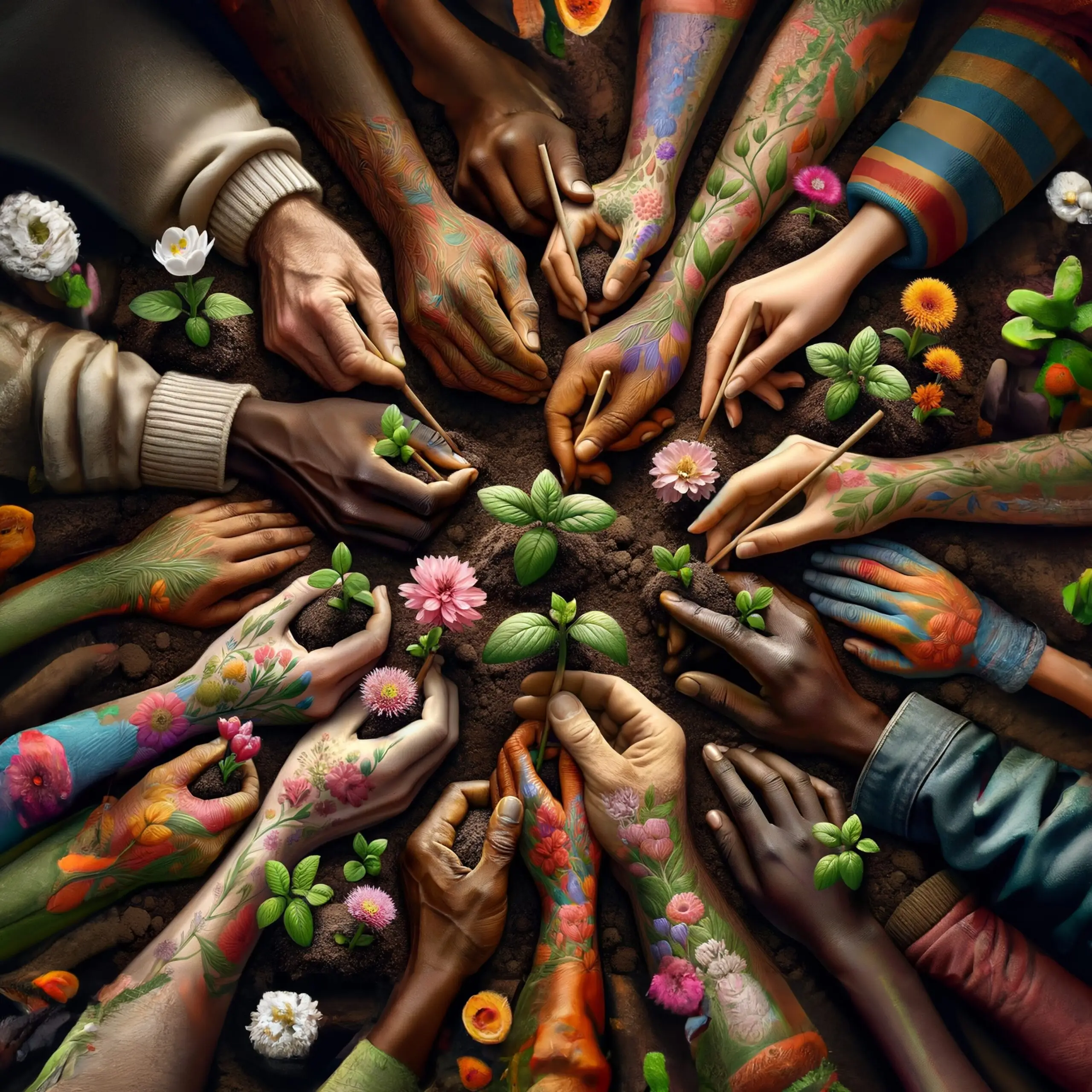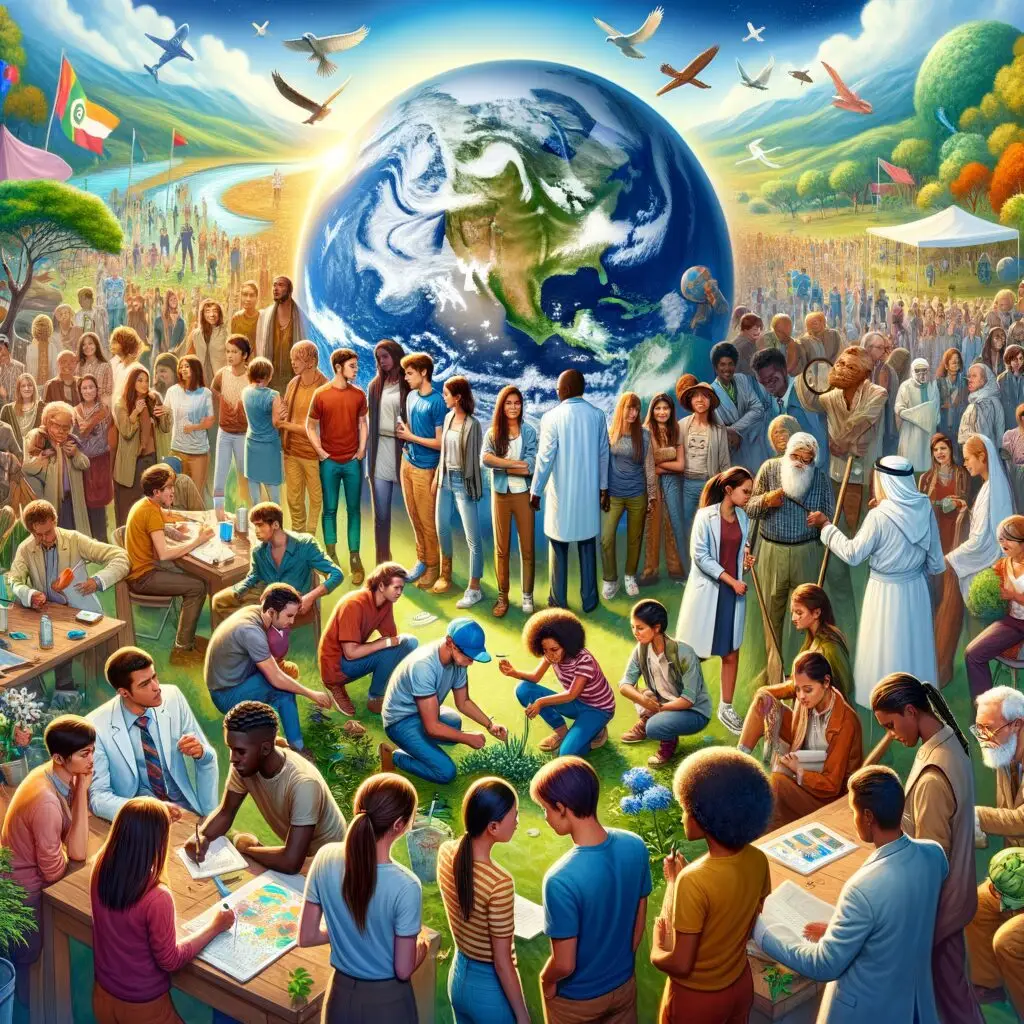May 2024 Issue 101 We Have Lost Our Tribe By Dr. Bud Holcomb

We Have Lost Our Tribe
Great Apes have evolved for 220 million years, and humans have evolved for 300,000 years, genetically identical to who we are today. We lived as hunters and gatherers for the majority of those years. Approximately 10,000 years ago, as agriculture began, we abruptly ended that lifestyle. Once we acquired ‘Property,’ we had to stay put to manage and protect it. We were no longer nomadic and no longer lived together.
Living in a tribe creates strong social connections. It provides guidance and much more excellent knowledge through consensus, regulates behavior, and provides emotional support during hard times. Primates, including humans, can only have rationality within a tribe or group. Only a group can effectively resolve conflicts, establish laws or norms, and promote harmony. Since we have lost our tribe, we are left only with the caretakers we were born to make sense of it all.

These solid social connections provide security and emotional well-being and, most importantly, offset any sense of loneliness. “The most terrible pain is the pain of feeling unloved.” The worst punishment we can do to somebody is to put them in jail, place them in solitary confinement, maroon them on an island, excommunicate them from society, and essentially make them lonely. ‘The worst pain is the feeling of being unloved.
Intolerance of loneliness is biologically adaptive as well because everything eats primates! Cats, dogs, and birds eat primates…We are nearly defenseless alone but extremely powerful within a group. It is evolutionarily adaptive to have anxiety, the symptom we all suffer, or to be scared when we are away from the tribe. Throughout our entire time on earth, if we were ever away from the tribe, we would not survive.
Every parent knows how much attention and security a child requires. Although every parent loves their child and does their best with the tools they were given, not all caregivers can offer this very demanding but critical task, especially with the prevalence of broken homes in modern society. Throughout our history, we have lived with a group of competent adults to help provide the constant attention and security we all need.
Loneliness is defined as a sense of isolation from others’ When a child’s attachment to their caretakers is damaged or broken, either through neglect or anger, they suffer the pain of feeling unloved or lonely. It is no mystery that this makes nature a scary place and fills a child with fear or anxiety.This anxiety and sense of loneliness perpetuate through every level of development, including far into our adult years. It follows that having social and other forms of stress, fear of different people, and assumptions that we are somehow inadequate compounds our loneliness, making it far worse.
It is well recognized that we suffer a “loneliness epidemic“in modern Western society Nearly one out of three Americans (28%) live alone. A 2018 nationwide survey found that 46% of Americans feel either often alone, always alone, or left out. Although young people, ages 18 to 22, had the highest prevalence of a sense of loneliness, the fastest rate of increase is in older people. By our mid-50s, Americans spend an average of six hours per day alone. This rate rapidly increases with age, and the average 80-year-old spends over eight hours a day alone. This makes no sense.Loneliness is an influential contributor to an extensive range of adverse health outcomes and mortality.
In young people, it strongly contributes to not only anxiety and depression but also smoking, drug abuse, poor education, and increased rates of crime. “The opposite of addiction is not sobriety; the opposite of addiction is connectedness.” Loneliness is a potent cause of physical health problems, such as heart disease and Diabetes. People with a sense of loneliness are 26% more likely to suffer premature death. Loneliness is more damaging to our physical health than smoking 15 cigarettes per day for decades.The ubiquitousness of social media can offset loneliness to a certain degree, but it often worsens it. It comes at the cost of face-to-face interactions. The post-COVID trend towards ‘working from home’ worsens the situation for many people.
So what do we do about this? In our society, there are no easy answers. The goal is to build and maintain strong social relationships Making an effort to reach out to Friends and Family strengthens social connections. Face-to-face interactions are best. Through social media, this can be approximated through FaceTime communication. Talking on the phone is better than texting, but any effort will strengthen relationships and provide the security of connectedness.

Participating in community groups, such as meet-up groups, clubs, spiritual organizations, and volunteer work, helps create a sense of belonging. Participating in exercise groups can also result in the absence of social interaction. Of course, physical exercise reduces anxiety and is necessary for our physical health, but when done with other people, it can also provide a sense of belonging.
We know that suffering from symptoms of depression, such as decreased self-esteem, social withdrawal, and low energy, makes it hard to connect to others. Anxiety disorders, particularly social anxiety, where we worry or fear how we may appear to others, cause us to fear rejection and isolation, making loneliness worse.Our job as professional healers of mental health focuses on alleviating anxiety and depression to help people find a sense of belonging and contentedness.
We have lost our tribe. We must find a way to get it back!


